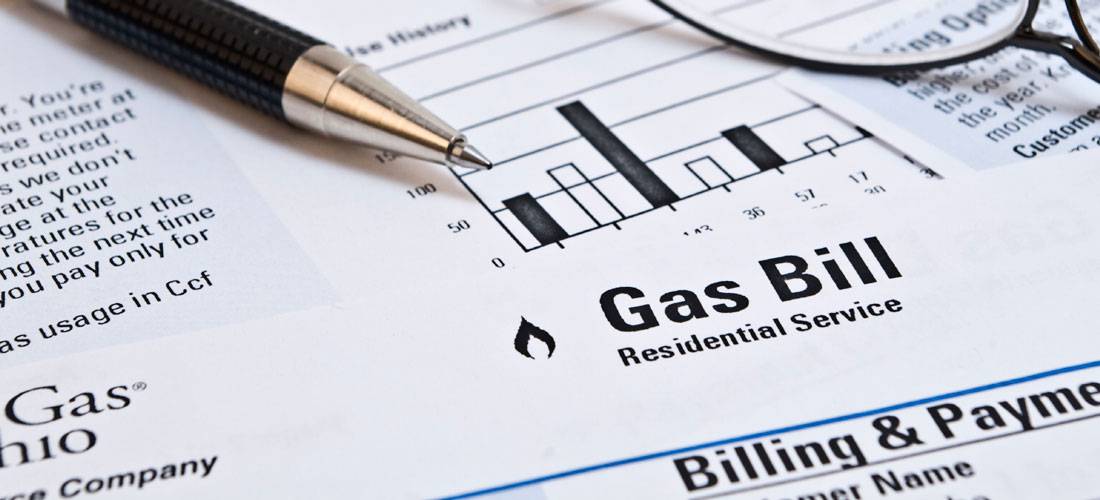Energy rates are going through the roof! According to forecasts, heating fuel costs are expected to touch record levels.
All households utilizing either natural gas, propane or electricity will see lots of cash outflow each month on account of rising heating expenses.

Modern central heating systems on the market today have way higher efficiency than conventional heating systems used in households. Not only will these modern systems reduce your monthly heating expenses, but also they will put less stress on the requirement for fuel and energy. Even the American Council for an Energy-Efficient Economy recommends replacing your old heating system.
Many households may consider the capital costs involved for replacing their earlier heating systems with modern high efficiency heating systems. Looking at the dependence and reliance on fuel and heating requirements in modern households, the U.S. Government does provide some tax incentives to assist citizens in replacing their heating systems.
Now you can keep warm without burning your finances. Use the Tax Credit to save on your monthly fuel costs and be more eco-friendly at the same time.
The tax credit is applicable for purchases of high efficiency central heating systems and for energy efficienct improvements in the building envelope of existing homes. Tax payers must install these heating systems in a place that is owned and serves as their primary residence in the United States.
The maximum tax credit for all improvements made in 2011 - 2014 is $500 although the department can modify this as per their annual policies. The cap includes tax credits for any improvements made in any previous year. If a taxpayer claimed $500 or more of these tax credits in any previous year, any purchases made in 2011 - 2014 will be ineligible for a tax credit.

As per the IRS rules, manufacturers of central heating systems need to certify the specific measures are eligible. Homeowners should get hold of a copy of the certification while purchasing these products from the retailer, contractor or manufacturer. Certifications must be kept in tax payers file but are not to be presented to the IRS. Tax payers can avail themselves of the tax benefit only once the unit is installed.
The types of upgrades that qualify for tax rebate are:
- High-efficiency air source heat pumps and central air conditioning units
- High-efficiency water heaters, including heat pump water heater
- High-efficiency fans for he ating and cooling systems
- High-efficiency propane, oil and gas furnaces and boilers
- Biomass Stoves
- Geothermal heat pumps
The qualifying efficiency requirements for these credits are:
- Furnaces and Boilers: Propane and Natural gas furnaces must reach an Annual Fuel Use Efficiency (AFUE) of 95 or above, oil furnaces and propane; oil and gas boilers must meet an AFUE of 95 or above. In addition, the credit covers costs up to $150
- Central Air Conditioning Units: : Air-source heat pumps Central and air conditioning units must meet the Seasonal Energy Efficiency Ratio (SEER) of 16, the highest tier standards set by the Consortium for Energy Efficiency (CEE). The credit covers costs up to $300.
- Fans for heating and cooling systems: $50 for any advanced main air circulating fan.
- Water Heaters:
- Propane or gas water heaters — Thermal efficiency of min 90% or an Energy Factor of minimum 0.82
- Heat pump water heaters—Energy Factor of at least 2.0 required
Water heaters credit covers costs up to $300.
- Biomass Stoves: Stoves must be used in the tax payers primary residence and must have a thermal efficiency of 75%. Biomass fuel means any article such as grasses, plants, trees, discarded wood, agricultural crops and residues to fibers, grasses, pellets and plants. The credit covers up to $300
Modern heating systems are the latest trend to keep your house warm without hurting your pocket. Take advantage of friendly tax rebates while improving the heating of your house. We all must use these benefits to contribute to an eco-friendly environment.













Write a Comment